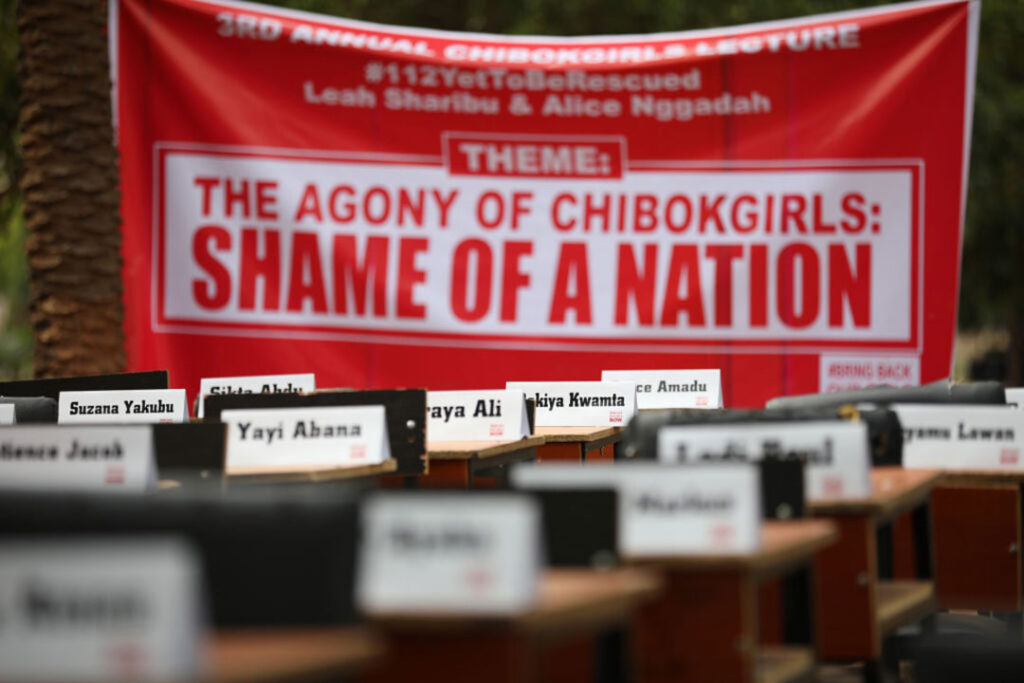ADF STAFF
Although the kidnapping of 276 students from the Government Girls Secondary School in Chibok led to global outrage, the shocking practice continues. Schoolchildren across northern Nigeria have become pawns in a thriving industry for kidnappers seeking attention and money.
In just the first three months of 2021, extremists kidnapped more than 800 students and their teachers in six events across four states.
Heavily armed men have attacked boarding schools and universities, forcing the students into nearby forests to hold them for ransom. During a kidnapping at Greenfield University, in Kaduna State, the kidnappers killed five hostages when their parents failed to meet demands.
Ransoms can drive families to sell all their possessions and farmland to raise the money.
For every high-profile kidnapping that happens, many more go unnoticed, according to Bulama Bukarti, a senior analyst in the Extremism Policy Unit of the Tony Blair Institute for Global Change.
“With culprits almost never arrested and prosecuted, it has dawned on criminals that crime pays,” Bukarti wrote in The Washington Post. “Children’s innate defenselessness and the presence of public schools in old, insecure buildings on the outskirts of towns leaves them exposed.”
In northwest Kaduna State, authorities closed 13 schools after extremists kidnapped 140 students from Bethel Baptist High. More than two dozen students and a teacher were rescued later. In another attack on Salihu Tanko Islamic School in Niger State, kidnappers took children as young as 3 years old. They abandoned the smallest children in the forest when they were unable to keep pace with the group.
In July, kidnappers contacted the families of 100 student hostages demanding that the families supply rice and other food or their children would starve.
The risk of kidnapping has caused parents across northern Nigeria to keep their children out of school. Authorities also have closed schools to prevent attacks.
As many as 10.5 million children under 14 are no longer attending school, according to the United Nations Children’s Fund (UNICEF). UNICEF estimates that more than 1,100 schools are closed across northwestern Nigeria. Even where schools remain open, tens of thousands of students have stopped attending as their parents try to protect them from attacks.
“The Nigerian authorities risk a lost generation due to their failure to provide safe schools for children in a region already devastated by Boko Haram atrocities,” said Osai Ojigho, director of Amnesty International Nigeria. “The Nigerian authorities’ failure to protect schoolchildren from recent attacks clearly shows that no lessons have been learned from the Chibok tragedy.”
The kidnappings and school closings have been particularly damaging for female students. In the case of Chibok, some girls returned from captivity with children born during their abduction, leading to stigma among their families. After school shutdowns, some parents have married their daughters off, ending their education, Bukarti said.
Chukwuemeka Nwajiuba, Nigeria’s minister of state for education, has said the country has the highest number of students out of school in Sub-Saharan Africa. But he also has told Nigerians the government can’t protect them from every attack.
“The Federal Government cannot secure every house. Everybody needs to be vigilant,” Nwajiuba told Nigeria’s The Punch.
The government has told schools to contact the nearest security agency if they are concerned about an attack, he added. Those forces are stretched thin, however, fighting Boko Haram and other insurgents across the region.
Bukarti has said the government must address the forces driving extremism and kidnappings — poverty, joblessness and a lack of education — if it hopes to get a handle on the problem.
“Nigerian children and their parents are being forced to choose between their lives and their education,” Bukarti told National Public Radio. “This poses the risk of creating a lost generation of Nigerians that will affect not only the future of those children, but also that of the whole country.”

